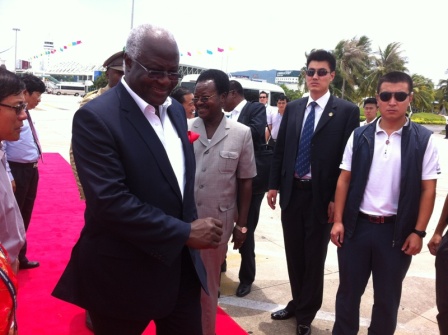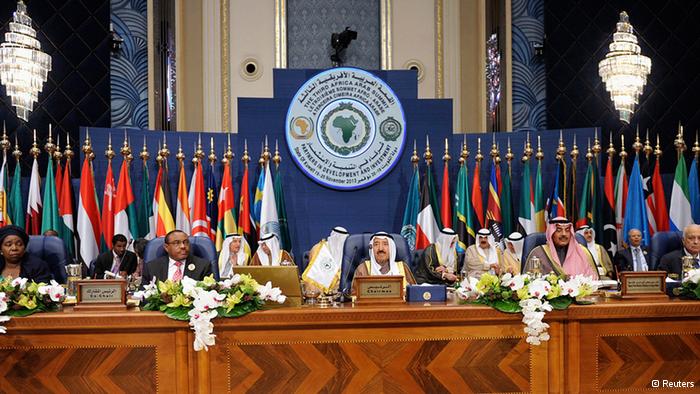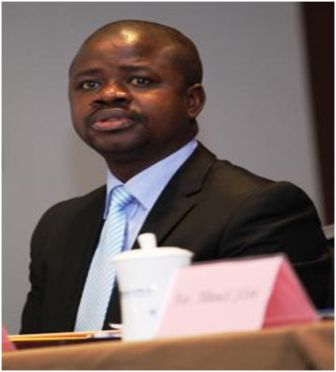Statement by HE President Koroma at the Sierra Leone Conference, London
November 19, 2009: Consultative Group Meeting: Distinguished guests, Ladies and Gentlemen, it is with pleasure that I welcome you to this Sixth Consultative Group Meeting for Sierra Leone; the first since my Government came to power in September 2007.Â
The spirit of this Consultative Group meeting is change: the change that we have made and the change we still need to make.
Today, I want to highlight three key points, which will also form the basis of today’s discussion: first, the progress that has been made in Sierra Leone; second, the vision that will guide us over the coming three years – which we call our Agenda for Change; and third, our new Partnership framework for moving forward.Â
Let me begin with the progress Sierra Leone has made.
We have put the 1990s behind us, and laid the foundation for lasting peace and prosperity. We have held two free and fair general elections which were internationally acclaimed. According to the World Bank, political stability and our citizens’ ability to hold government to account has improved faster than in almost any other country in the world. And the 2009 Mo Ibrahim Index acclaimed Sierra Leone as one of the five rising countries that have made good progress in democratic governance.Â
To kick start private sector-led growth, we have improved the regulatory framework for businesses and removed administrative barriers to investment. Our efforts have yielded results. Sierra Leone has moved up 20 places in the World Bank’s Doing Business Rankings in the last three years. Sierra Leone is now one of the top five countries in Sub-Saharan Africa when it comes to investor protection and the ease of starting a business.Â
We have worked hard to tackle corruption in our society. In 2008 we passed one of the toughest Anti-Corruption laws in Africa. The Act creates new offences such as illicit enrichment, abuse and misuse of office, and makes it compulsory for all public servants to declare their assets. Public officers including myself, Government Ministers, Parliamentarians and Civil Servants have done so. As a result of these and other changes, the Anti-Corruption Commission has pursued 15 successful prosecutions in the last twelve months, compared to an average of just 4 successful prosecutions per year between 2000 and 2007. While our citizens recognize there is a long way to go in the fight against corruption, they are noticing the difference: Sierra Leone has risen 12 places in this year’s Transparency International Corruption Perceptions Index.
The systems, processes and procedures of key Ministries are being reviewed with the objective of reducing leakages. To increase transparency, the Auditor-General’s report on Public Accounts is now made public immediately after it is laid before Parliament, and the reports are now debated by the Public Accounts Committee in open hearing sessions.
We have also been robust in fighting the drug lords who are attempting to make West Africa a centre for drugs trafficking, passing tough anti-drug legislation and securing the convictions of drug smugglers in our courts.
As well as promoting democratic governance, tackling corruption and fighting off the menace of drug trafficking, we have ensured economic stability by implementing sound macroeconomic policies. Our Country Policy and Institutional Assessment score on economic management is higher than the average for low income countries.
This stability has contributed to impressive economic growth, which between 2004 and 2008 averaged 6.5 percent. And this year, despite the global financial crisis, our economy is projected to grow at 4 percent, more than double the average for the rest of Sub-Saharan Africa of 1.9 percent.Â
So: Sierra Leone has already come a long way. But there is still a long way to go. We must all work together in partnership, to uphold and deepen the progress that we have made. And the foundation for this partnership must be our Agenda for Change.
Mr Chairman, ladies and gentlemen, let me now turn to the second key area for our discussions, which is the Agenda for Change.
I launched the Agenda for Change – Sierra Leone’s Second Generation Poverty Reduction Strategy – in May this year.
The strategic priorities of the Agenda for Change are Enhancing Productivity in Agriculture and Fisheries, Enhancing National Electricity and Developing the national Transportation Network, with the critical underpinning of Human Development.
In addition, the Agenda emphasizes the importance of sustaining Peace, Security and Good Governance, Sustaining Macroeconomic Stability, growing the Private Sector and managing our Natural Resources effectively.
We are already making good progress towards realizing this change.
In energy, the long awaited Bumbuna Hydro-electric project has been completed, providing clean, affordable and sustainable hydro electricity to Freetown and the surrounding areas.
In agriculture, we have deployed over three times more tractors, power tillers, and combined harvesters than last year, while the land ploughed for rice cultivation is up by 35% since last year.
In infrastructure, with support from our development partners, all twelve core road building projects are making good progress and will be completed before the end of 2012.
In health, maternal mortality has fallen by around 30% in the last three years.
But in all these areas we want to go further.
In energy, now that we have completed the first phase of Bumbuna, we want to start the second phase. In addition, we want to complement Bumbuna Hydro with thermal plants to ensure continuity of regular supply of affordable electricity during the dry season. We also want to focus on harnessing other hydro potential nationwide with the goal of providing two to four megawatts for each district. As well as increasing our generating capacity, we also need to ensure that what is generated can reach end users safely. Our National Transmission and Distribution Network therefore needs to be rehabilitated and expanded.
In agriculture, our focus will be on achieving food self-sufficiency, increasing agricultural productivity through intensification and diversification, promoting commodity commercialization and improving research and development. In recognition of our efforts to date, we have been made champions of Agriculture in Africa by the African Union/NEPAD. We must continue to be a role model for the continent by offering farmers an improved package of support.
In terms of transport infrastructure, my government aims to unite Sierra Leone through projects that link up the villages, towns, and cities, and all the ethnic groups in the country. We therefore want to rehabilitate, maintain and expand the national road network, as well as to improve Sea, Land and Air transportation.
In the water sector, we aim to drastically improve access nationwide. In the Western Area, we want to rehabilitate the existing Guma Dam, repair and expand the distribution network, protect catchment areas and, to meet future demand, construct a second dam. In each of the provincial headquarter towns, we are currently assessing the requirements to provide pipe borne water to large settlements in rural communities. Our goal is to ensure that each chiefdom has a gravity water scheme.
Next, education. Education improves our character, enhances the quality of our production, and ensures the advance of our democracy. In education we plan to consolidate our gains on increasing access to and completion of primary schooling especially for girls and out-of-school children, improve the quality and relevance of primary education, and, critically, improve the capacity to effectively and efficiently deliver schooling. We also want to focus on education that can meet the new development challenges of our country, by improving our tertiary education and building and maintaining Technical Vocational Institutes throughout the country.
In health, we have just launched our five year National Health Sector Strategic Plan to improve availability, accessibility, and utilisation of health services, with a special emphasis on disadvantaged groups. The Basic Package of Essential Services is the foundation of the Strategy, which aims to provide a minimum level of quality care for all. We will focus on further reducing high maternal and under-five mortality rates by abolishing user fees for pregnant women, children and the very poor. This will increase use of essential healthcare services and enable Sierra Leone to meet our Millennium Development Goals. We need support to ensure that Sierra Leone can live up to its commitments and abolish user fees for these vulnerable groups in 2010. In the medium to long term, we hope to improve universal access to quality health services through the introduction of a National Health Insurance Scheme. Malaria remains the most common cause of illness and death in the country and Sierra Leone, and we plan to rapidly scale up our key interventions including distribution of insecticide treated nets. We are also stepping up the fight against HIV/AIDS in order to meet the targets we have set for ourselves in our Strategic Plan, and fulfill our commitments to achieving universal access to HIV/AIDS services.
I also wish to speak to a few cross cutting issues.
The majority of citizens in my country are youths, and they represent the future of the nation. We can only achieve the priorities of our Agenda for Change when the youth are completely integrated into the development agenda. We are establishing the National Youth Commission as the primary mechanism for this partnership with youth. We are also developing a comprehensive Youth Employment Programme that integrates youth activities into all sectors in the economy.
In the area of gender equality, my government is committed to increasing women’s participation in economic and political life. Our commitment to ensuring that women are in powerful positions is evidenced by my appointment of a woman as Chief Justice. This is the first ever appointment of a woman to head one of the three branches of government. I do not intend to stop there: my Government is committed to implementing the Convention on the Elimination of all Forms of Discrimination Against Women and the three Gender Acts recently passed by Parliament.
Underpinning the successful implementation of the Agenda for Change is a capable civil service that can deliver services to the people. It is for this reason that we are reforming the civil service and have established a Strategy and Policy Unit in the Office of the President to provide technical assistance to MDAs in the performance of their responsibilities.
Mr Chairman, Ladies and Gentlemen, having described the Agenda for Change, let me now turn to the new partnership framework through which it will be achieved.
Development Assistance is critical to the achievement of the Agenda for Change. It is therefore imperative that my Government and our development partners work together to make development assistance more effective and efficient. This requirement stems from our obligations to the people who elected us, as well as from the international agreements to which Sierra Leone and many of its partners are a signatory such as the Paris Declaration on Aid Effectiveness, the Accra Agenda for Action, and the OECD DAC Principles for Good International Engagement in Fragile States.
Together with its development partners, the Government of Sierra Leone has undertaken a number of activities to improve aid coordination and the management of public resources, including the formulation of three Poverty Reduction Strategy Papers, the establishment of an online, open-access aid tracking system, and the creation of mechanisms to foster dialogue between the Government and its development partners including the Development Partners’ Committee. However, despite these efforts, we recognize that aid could still be made more effective. Both partners and Government have tended to carry out their activities in a less than harmonised fashion. It is time that changed.
To ensure Transparency and Mutual Accountability in the utilization of Aid Resources, we have developed an Aid Policy for Sierra Leone. Like the Agenda for Change, this policy was developed in consultation with all stakeholders. It gives a practical blueprint on how to improve aid utilisation and also articulates what the Government will do to make aid more effective. The Aid Policy will ensure that Pubic Resources are directed in a manner that provides maximum impact on economic development and poverty alleviation.
Another important area where we can make a marked difference is by ensuring that the road from commitments to disbursements is shortened as best as possible without undermining fiduciary standards.
Conclusion
Ladies and Gentlemen, on behalf of all Sierra Leoneans, let me conclude by thanking you for the support you have offered us in the past. Your assistance has helped us put the dark night of our civil war behind us, and welcome a bright new dawn.
As I said at the beginning of my statement, the spirit of this Consultative Group meeting is change. Change has come to Sierra Leone; our task is to sustain, accelerate and deepen it.
Today, I ask you to complete the journey we have started together. The programme I have laid before you is ambitious. Achieving it will require not just that you honour your existing commitments, but that you scale them up. It will require not just that existing partners stay the course, but that new partners join our shared endeavour. And it will require not just your financial assistance but your commitment to telling the story of the new Sierra Leone that you have helped make possible.Â
It is time for us to write the next chapter of that story together.
I thank you for your attention.
Stay with Sierra Express Media, for your trusted place in news!
© 2009, https:. All rights reserved.






